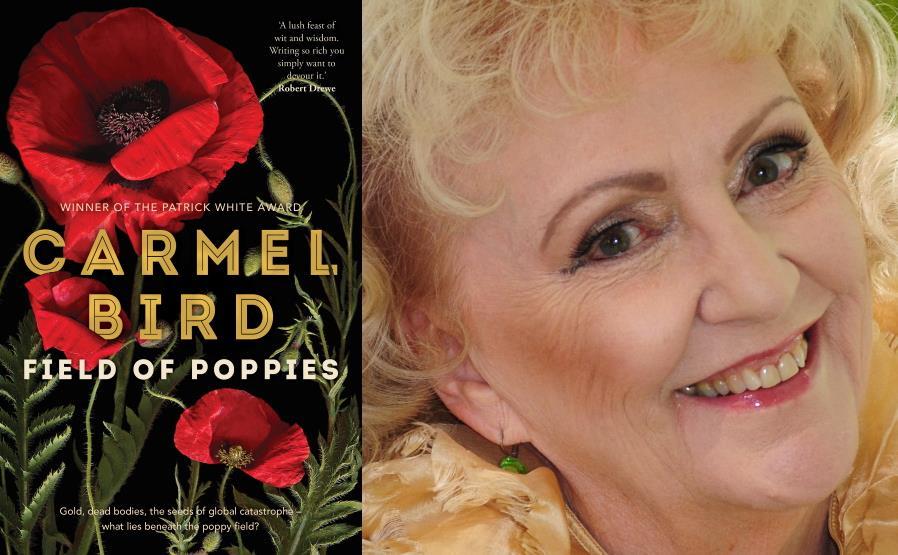The eight-page preface to Field of Poppies mostly consists of unattributed notes on the dreadful and frightening condition of the world today, from ‘Ash cloud destroys millions of birds. Trees, what became of the trees?’ to ‘Deep, deep dishonesty found in the lockers of the Gods Upon Olympus.’
Having set this mood of gloom, the novel opens with a surprisingly cheerful narrator, Marsali – her name rhymes with parsley, she clarifies – explaining that this is the story of the years she and her partner William spent in a charming country town: Muckleton, Victoria. Marsali and William, a couple in their sixties, are self-styled tree-changers looking for tranquillity and beauty in a rural setting. They find it for a while in a beautiful local mansion but eventually circumstances prompt their return to high-rise apartment living in Melbourne.
The chatty, first-person narration somewhat evokes a self-conscious memoir. There is also a slow-moving but reasonably eventful plot that includes a burglary, a mysterious disappearance and a death. The story is interspersed with mini-lectures by William and with Marsali’s reminiscences and reflections, which are interesting and sometimes amusing. In addition, Marsali holds forth at length about her feelings for, and love of, paintings, in particular Claude Monet’s famous The Poppy Field near Argenteuil – to the extent that the reader almost feels as though they were in an art appreciation class.
Poppies feature significantly in Marsali’s life. She quotes from a book about the Monet that the ‘picture conjures up the vibrant atmosphere of a stroll through the fields on a summer’s day’ and sees herself doing that while at the same time alluding to the symbolism of her stroll through Muckleton. She reminisces fondly about the poppies of her childhood. And come November 11 in Muckleton, when the ‘town was always awash with fabric poppies, knitted poppies, paper poppies’, she takes time out to share her views about the evils of war and the ‘young men who in fact died for no real reason.’ She deplores that sometimes ‘documentary TV seems to depend for its existence almost entirely on the two “Great Wars” and the endless gleeful examination of the character and exploits of Adolf Hitler.’
Field of Poppies is a gentle allegory for the notion that the good life goes on – for the privileged, at least – in spite of a worsening environment; those who can afford it will continue their way of life, even if they have to make some sacrifices.
Carmel Bird has used Field of Poppies to express her views on a range of subjects. As is typical of her work, the writing is elegant, persuasive and witty. What she has to say is worthy of attention. But this allegorical novel buckles somewhat under the weight of all its asides and digressions.
3 stars out of 5 ★★★
Field of Poppies by Carmel Bird
Publisher: Transit Lounge
ISBN: 9781925760392
Format: Hardback
Categories: Fiction, Australian
Pages: 264
Release Date: 1 November 2019
RRP: $29.99






